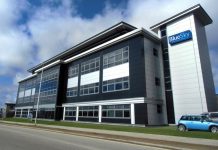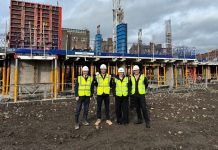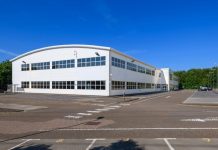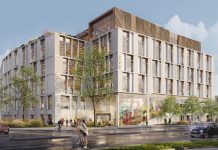Swansea Bay Business Club has released its final set of results from its quarterly Business Barometer surveys, showing that business confidence remains steady across the Swansea Bay City Region.
The general trend in results from the 2018 Business Barometers have shown a sense of confidence from businesses, even in the face of the failed Tidal Lagoon scheme and on-going disruptive construction works across Swansea City Centre and the wider region. Despite this, the latest survey has shown that the majority of businesses surveyed (58%) have performed about the same over the last three months as they did in the previous three months.
Responses to the latest survey came from across Swansea, Neath Port-Talbot and Carmarthenshire and encompassed a range of sectors including Construction, Retail and Legal Services. Once again 58% of respondents said they expected to perform about the same in the coming three months as they have done in the previous three, while 32% said they were expecting to perform stronger and just 10% predicted they would perform weaker.
Perhaps most significantly, 0% of all those surveyed predicted a significant decrease in profitability, capital investment or staffing levels over the coming three months. 42% expect an increase in profitability with 48% predicting no change and 32% predicted an increase in capital investment with the other 68% saying they foresee no change.
President of Swansea Bay Business Club, Paul Gardner, commented: “As we come to the end of 2018 and our final Business Barometer survey, it is once again pleasing to see such an optimistic outlook from the local business community.
“Large numbers of respondents expecting no change suggests a stability amongst the community that shouldn’t be undervalued in what is a testing climate for a lot of businesses. This coupled with 0% of those we surveyed foreseeing a significant decrease in profitability, staffing levels and capital investment, paints a very positive picture as we head in to 2019.”
When asked what the single largest barrier to the growth of their organisation was, the top three responses were global/national economic performance (21%), declining demand from customers (21%) and price pressure from customers (15%).
Paul continued: “It’s unsurprising to see that in the face of the uncertainty surrounding the current Brexit deal that the chief concern for businesses is the national economic performance. Whilst this is an area we cannot directly control the outcome of, what we can do as the region’s premier networking club is to continue to provide the platform for businesses to interact, share ideas and assist in each other’s growth. We remain confident that no matter what the future holds on a national level we will retain a strong sense of resilience throughout the business community in our region, a community that will continue to thrive and grow.
“This is something we look forward to playing our part in when our networking season resumes in 2019, in what will be our 70th year.”



















